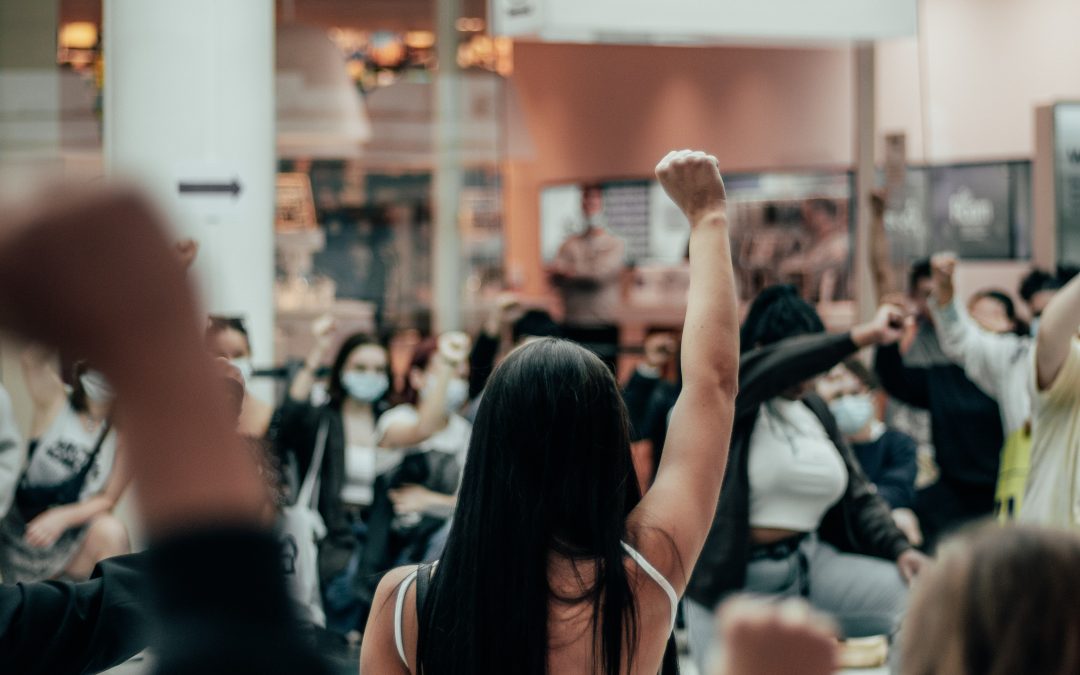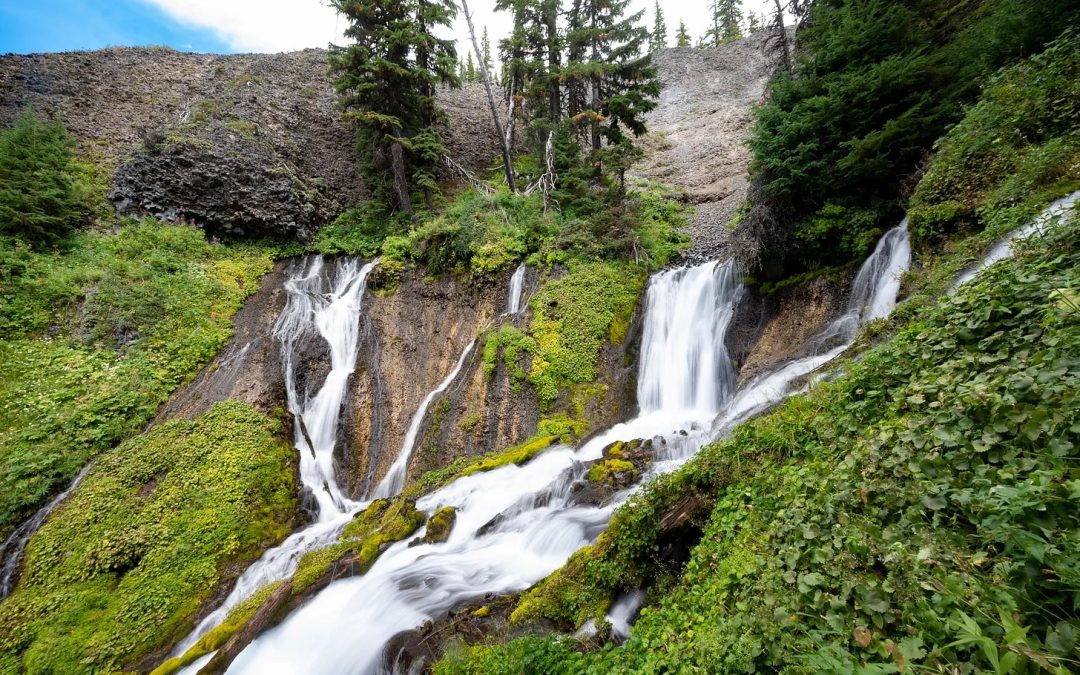David Roberts — a journalist who has written for Vox and Grist and now runs a popular green-tech newsletter — recently shared this on Twitter:
This idea is not new to Mr. Roberts. It actually reflects a decades-long push to make environmentalism mainstream by sacrificing its foundational biocentric values in favor of anthropocentrism.
The organization 350, for example, has released a ‘style guide’ advising activists to “Focus on people. Whenever possible, use visuals to emphasize that climate is a real, tangible human problem—not an abstract [sic] ecological issue.” A later version of the same guide edited the statement to read: “People are the heart of the climate movement … avoid photos of polar bears, icebergs or other images that obscure the real people behind the climate crisis.”
Some see this sort of thing as pragmatic thinking to address a crisis. Others — including me, and despite my love of people — see it as at best a profoundly dangerous mistake, and at worst as enabling colonization of the environmental movement by profit-driven interests.
Last year, me and my co-authors Derrick Jensen and Lierre Keith released our book “Bright Green Lies: How the Environmental Movement Lost Its Way and What to Do About It” (thanks to the wonderful folks at Monkfish Book Publishing Company) which we bookend with this topic. This is an excerpt from Chapter 2, which is titled “Solving for the Wrong Variable,” and from the conclusion of the book:
Once upon a time, environmentalism was about saving wild beings and wild places from destruction. “The beauty of the living world I was trying to save has always been uppermost in my mind,” Rachel Carson wrote to a friend as she finished the manuscript that would become Silent Spring. “That, and anger at the senseless, brutish things that were being done.” She wrote with unapologetic reverence of “the oak and maple and birch” in autumn, the foxes in the morning mist, the cool streams and the shady ponds, and, of course, the birds: “In the mornings, which had once throbbed with the dawn chorus of robins, catbirds, doves, jays, and wrens, and scores of other bird voices, there was now no sound; only silence lay over the fields and woods and marshes.” Her editor noted that Silent Spring required a “sense of almost religious dedication” as well as “extraordinary courage.” Carson knew the chemical industry would come after her, and come it did, in attacks as “bitter and unscrupulous as anything of the sort since the publication of Charles Darwin’s Origin of Species a century before.” Seriously ill with the cancer that would kill her, Carson fought back in defense of the living world, testifying with calm fortitude before President John F. Kennedy’s Science Advisory Committee and the U.S. Senate. She did these things because she had to. “There would be no peace for me,” she wrote to a friend, “if I kept silent.”
Carson’s work inspired the grassroots environmental movement; the creation of the Environmental Protection Agency (EPA); and the passage of the Clean Air Act, the Clean Water Act, and the Endangered Species Act. Silent Spring was more than a critique of pesticides—it was a clarion call against “the basic irresponsibility of an industrialized, technological society toward the natural world.”
Today’s environmental movement stands upon the shoulders of giants, but something has gone terribly wrong. Carson didn’t save the birds from DDT so that her legatees could blithely offer them up to wind turbines. We are writing this book because we want our environmental movement back.
Mainstream environmentalists now overwhelmingly prioritize saving industrial civilization over saving life on the planet. The how and the why of this institutional capture is the subject for another book, but the capture is near total. For example, Lester Brown, founder of the Worldwatch Institute and Earth Policy Institute—someone who has been labeled as “one of the world’s most influential thinkers” and “the guru of the environmental movement”—routinely makes comments like, “We talk about saving the planet…. But the planet’s going to be around for a while. The question is, can we save civilization? That’s what’s at stake now, and I don’t think we’ve yet realized it.” Brown wrote this in an article entitled “The Race to Save Civilization.”
The world is being killed because of civilization, yet what Brown says is at stake, and what he’s racing to save, is precisely the social structure causing the harm: civilization. Not saving salmon. Not monarch butterflies. Not oceans. Not the planet. Saving civilization.
Brown is not alone. Peter Kareiva, chief scientist for The Nature Conservancy, more or less constantly pushes the line that “Instead of pursuing the protection of biodiversity for biodiversity’s sake, a new conservation should seek to enhance those natural systems that benefit the widest number of people…. Conservation will measure its achievement in large part by its relevance to people.”
Bill McKibben, who works tirelessly and selflessly to raise awareness about global warming, and who has been called “probably America’s most important environmentalist,” constantly stresses his work is about saving civilization, with articles like “Civilization’s Last Chance,”11 or with quotes like, “We’re losing the fight, badly and quickly—losing it because, most of all, we remain in denial about the peril that human civilization is in.”
We’ll bet you that polar bears, walruses, and glaciers would
have preferred that sentence ended a different way.
In 2014 the Environmental Laureates’ Declaration on Climate Change was signed by “160 leading environmentalists from 44 countries” who were “calling on the world’s foundations and philanthropies to take a stand against global warming.” Why did they take this stand? Because global warming “threatens to
cause the very fabric of civilization to crash.” The declaration concludes: “We, 160 winners of the world’s environmental prizes, call on foundations and philanthropists everywhere to deploy their endowments urgently in the effort to save civilization.” Coral reefs, emperor penguins, and Joshua trees probably wish that sentence would have ended differently. The entire declaration, signed by “160 winners of the world’s environmental prizes,” never once mentions harm to the natural world. In fact, it never mentions the natural world at all.
Are leatherback turtles, American pikas, and flying foxes “abstract ecological issues,” or are they our kin, each imbued with their own “wild and precious life”?
Wes Stephenson, yet another climate activist, has this to say: “I’m not an environmentalist. Most of the people in the climate movement that I know are not environmentalists. They are young people who didn’t necessarily come up through the environmental movement, so they don’t think of themselves as environmentalists. They think of themselves as climate activists and as human rights activists. The terms ‘environment’ and ‘environmentalism’ carry baggage historically and culturally. It has been more about protecting the natural world, protecting other species, and conservation of wild places than it has been about the welfare of human beings. I come at it from the opposite direction. It’s first and fore- most about human beings.”
Note that Stephenson calls “protecting the natural world, protecting other species, and conservation of wild places” baggage.
Naomi Klein states explicitly in the film This Changes Everything: “I’ve been to more climate rallies than I can count, but the polar bears? They still don’t do it for me. I wish them well, but if there’s one thing I’ve learned, it’s that stopping climate change isn’t really about them, it’s about us.”
And finally, Kumi Naidoo, former head of Greenpeace International, says: “The struggle has never been about saving the planet. The planet does not need saving.”
When Naidoo said that, in December 2015, it was 50 degrees Fahrenheit warmer than normal at the North Pole, above freezing in the winter.
##
I (Derrick) wrote this for a friend’s wedding.
> Each night the frogs sing outside my window. “Come to me,” they sing. “Come.” This morning the rains came, each drop meeting this particular leaf on this particular tree, then pooling together to join the ground. Love. The bright green of this year’s growth of redwood trees against the dark of shadows, other trees, tree trunks, foliage, all these plants, reaching out, reaching up. I am in love. With you. With you. With the world. With this place. With each other. Redwoods cannot stand alone. Roots burrow through the soil, reaching out to each other, to intertwine, to hold up these tallest of trees, so they may stand together, each root, each tree, saying to each other, “Come to me. Come.” What I want to know is this: What do those roots feel at first touch, first embrace? Do they find this same homecoming I find each time in you, in your eyes, the pale skin of your cheek, your neck, your belly, the backs of your hands? And the water. It is evening now, and the rain has stopped. Yet the water still falls, drop by drop from the outstretched arms of trees. I want to know, as each drop let’s go its hold, does it say, and does the ground say to it, as I say to you now, “Come to me. Come.”
In the 15 years since that wedding, the frogs in my pond have suffered reproductive failure, which is science-speak for their off- spring dying, baby after baby, year after year. Their songs began to lessen. At first their songs were so loud you could not hold a (human) conversation outside at night, and then you could. The first spring this happened I thought it might just be a bad year. The second spring I sensed a pattern. The third spring I knew something was wrong. I’d also noticed the eggs in their sacs were no longer small black dots, as before, but were covered in what looked like white fur. A little internet research and a few phone calls to herpetologists revealed the problem to me. The egg sacs were being killed by a mold called saprolegnia. It wasn’t the mold’s fault. Saprolegnia is ubiquitous, and eats weak egg sacs, acting as part of a clean-up crew in ponds. The problem is that this culture has depleted the ozone layer, which has allowed more UV-B to come through: UV-B weakens egg sacs in some species.
What do you do when someone you love is being killed? And what do you do when the whole world you love is being killed? I’m known for saying we should use any means necessary to stop the murder of the planet. People often think this is code language for using violence. It’s not. It means just what it says: any means necessary.
UV-B doesn’t go through glass, so about once a week between December and June, I get into the pond to collect egg sacs to put in big jars of water on my kitchen table. When the egg sacs hatch, I put the babies back in the pond. If I bring in about five egg sacs per week for 20 weeks, and if each sac has 15 eggs in it, and if there’s a 10 percent mortality on the eggs instead of a 90 percent mortality, that’s 2,400 more tadpoles per year. If one percent of these survive their first year, that’s 24 more tadpoles per year who survive. I fully recognize that this doesn’t do anything for frogs in other ponds. It doesn’t help the newts who are also disappearing from this same pond, or the mergansers, dragonflies, or caddisflies. It doesn’t do anything for the 200 species this culture causes to go extinct each and every day. But it does help these.
I don’t mean to make too big a deal of this.
One of my earliest memories is from when I was five years old, crying in the locker room of a YMCA where I was taking swimming lessons, because the water was so cold. I really don’t like cold water. So, I have to admit I don’t get all the way into the water when I go into my pond to help the frogs. I only get in as far as my thighs. But this isn’t, surprisingly enough, entirely because of my cold-water phobia. It’s because of a creature I’ve seen in the pond a few times, a giant water bug, which is nicknamed Toe-Biter. My bug book says they’re about an inch and a half long, but every time I get in the pond, I’m sure they are five or six inches. And I can’t stop thinking about the deflated frog-skin sacks I’ve seen (the giant water bug injects a substance that liquefies the frog’s insides, so they can be sucked out as through a straw). I’ve read that the bugs sometimes catch small birds. So, you’ll note I only go into the pond as deep as my thighs—and no deeper. Second, I have to admit that sometimes I’m not very smart. It took me several years of this weekly cold-water therapy to think of what I now perceive as one of the most important phrases in the English language—“waterproof chest waders”—and to get some.
What do you do when someone you love is being killed? It’s pretty straightforward. You defend your beloved. Using any means necessary.
##
We get it. We, too, like hot showers and freezing cold ice cream, and we like them 24/7. We like music at the touch of a button or, now, a verbal command. We like the conveniences this way of life brings us. And it’s more than conveniences. We know that. We three co-authors would be dead without modern medicine. But we all recognize that there is a terrible trade-off for all this: life on the planet. And no individual’s conveniences—or, indeed, life—is worth that price.
The price, though, is now invisible. This is the willful blindness of modern environmentalism. Like Naomi Klein and the polar bears, the real world just “doesn’t do it” for too many of us. To many people, including even some of those who consider themselves environmentalists, the real world doesn’t need our help. It’s about us. It’s always “about us.”
##
Decades ago, I (Derrick) was one of a group of grassroots environmental activists planning a campaign. As the meeting started, we went around the table saying why we were doing this work. The answers were consistent, and exemplified by one person who said, simply, “For the critters,” and by another person who got up from the table, walked to her desk, and brought back a picture. At first, the picture looked like a high-up part of the trunk of an old-growth Douglas fir tree, but when I looked more closely, I saw a small spotted owl sticking her camouflaged head out of a hole in the center of the tree’s trunk. The activist said, “I’m doing it for her.”
##
The goal has been shifted, slowly and silently, and no one seems to have noticed. Environmentalists tell the world and their organi- zations that “it’s about us.” But some of us refuse to forget the last spotted owls in the last scrap of forest, the wild beings and wild places. Like Rachel Carson before us, there will be no peace for us if we keep silent while the critters, one by one, are disappeared. Our once and future movement was for them, not us. We refuse to solve for the wrong variable. We are not saving civilization; we are trying to save the world.
[And this part comes from the conclusion of the book:]
… throughout this book, we’ve repeated Naomi Klein’s comments about polar bears not doing it for her. Not to be snarky, but instead because that’s the single most important passage in this book.
Although we’ve spent hundreds of pages laying out facts, ultimately this book is about values. We value something different than do bright greens. And our loyalty is to something different. We are fighting for the living planet. The bright greens are fighting to continue this culture—the culture that is killing the planet. Seems like the planet doesn’t do it for them.
Early in this book we quoted some of the bright greens, including Lester Brown: “The question is, can we save civilization? That’s what’s at stake now, and I don’t think we’ve yet realized it.” And Peter Kareiva, chief scientist for The Nature Conservancy: “Instead of pursuing the protection of biodiversity for biodiversity’s sake, a new conservation should seek to enhance those natural systems that benefit the widest number of people.” And climate scientist Wen Stephenson: “The terms ‘environment’ and ‘environmental- ism’ carry baggage historically and culturally. It has been more about protecting the natural world, protecting other species, and conservation of wild places than it has been about the welfare of human beings. I come at it from the opposite direction. It’s first and foremost about human beings.” And Bill McKibben: “We’re losing the fight, badly and quickly—losing it because, most of all, we remain in denial about the peril that human civilization is in.”
Do we yet see the pattern?
And no, we’re not losing that fight because “we remain in denial about the peril that human civilization is in.” We’re losing that fight because we’re trying to save industrial civilization, which is inherently unsustainable.
We, the authors of this book, also like the conveniences this culture brings to us. But we don’t like them more than we like life on the planet.
We should be trying to save the planet—this beautiful, creative, unique planet—the planet that is the source of all life, the planet without whom we all die.
We are in the midst of a battle for the soul of the environmental movement, and I, for one, will not forget the forests, the birds, the fish, the antelope, the bears, the spiders, the plankton — all those beings who hold the world together in their weaving, who share common ancestry with us. Nor will I forget the mountains whose minerals make up our bones, the rivers whose waters flow in our veins, the Earth itself who is our mother. These beings are family, and I will not turn away from them.
David happens to live in my hometown, Seattle. David – if you read this, I’d like to invite you to get a cup of coffee next time I’m in town. I’ll give you a copy of #BrightGreenLies and we can talk.
Postscript: The type of thinking being promoted by David Roberts has profound consequences for the living world. For the past two years, I’ve been fighting to “Protect Thacker Pass” — a beautiful, biodiverse sagebrush-steppe in the northern Great Basin of Nevada — from destruction for a lithium mine.
The Bright Green worldview sees lithium as a necessary resource to transition away from fossil fuels and save civilization from global warming, and so Bright Greens promote lithium mining, vast solar arrays in desert tortoise habitat, and offshore wind energy development in the last breeding ground of the Atlantic Right Whale. And if some endangered wildlife has to be killed, some water poisoned, and some Native American sacred sites destroyed, well, that’s just an acceptable cost to save civilization. And so vast subsidies (see the inflation Reduction Act, for example) are being mobilized to convert yet more wild land into industrial energy and mining sacrifice zones.
Around the world, nature retreats and civilization grows.
Featured image by Max Wilbert: a spring gushing from the rock high in the western mountains.
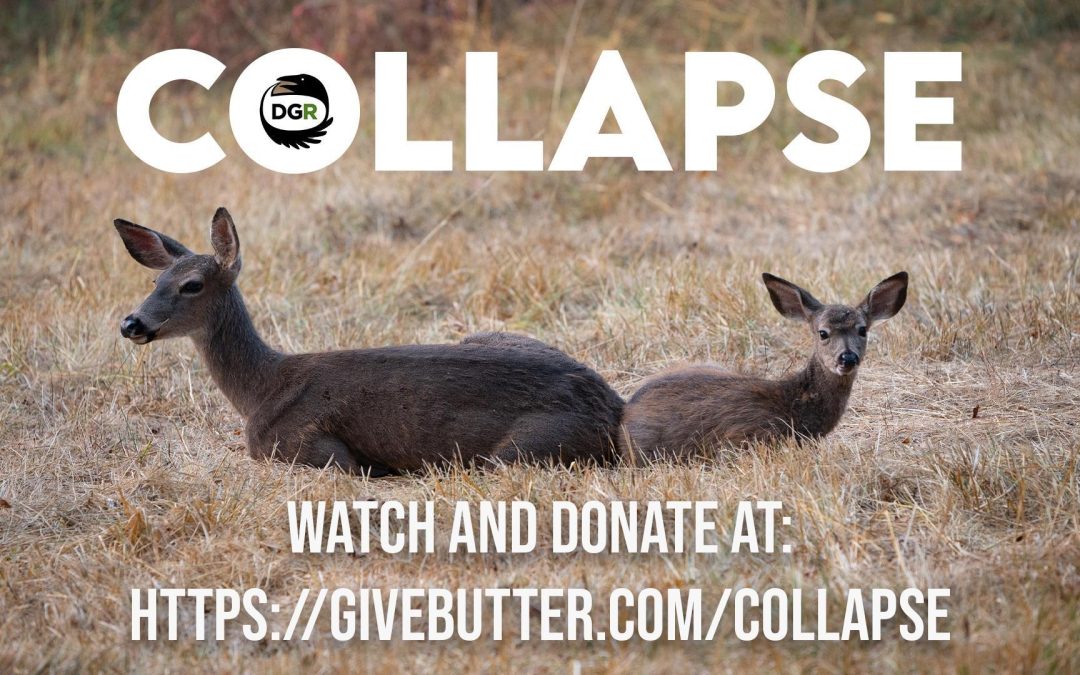

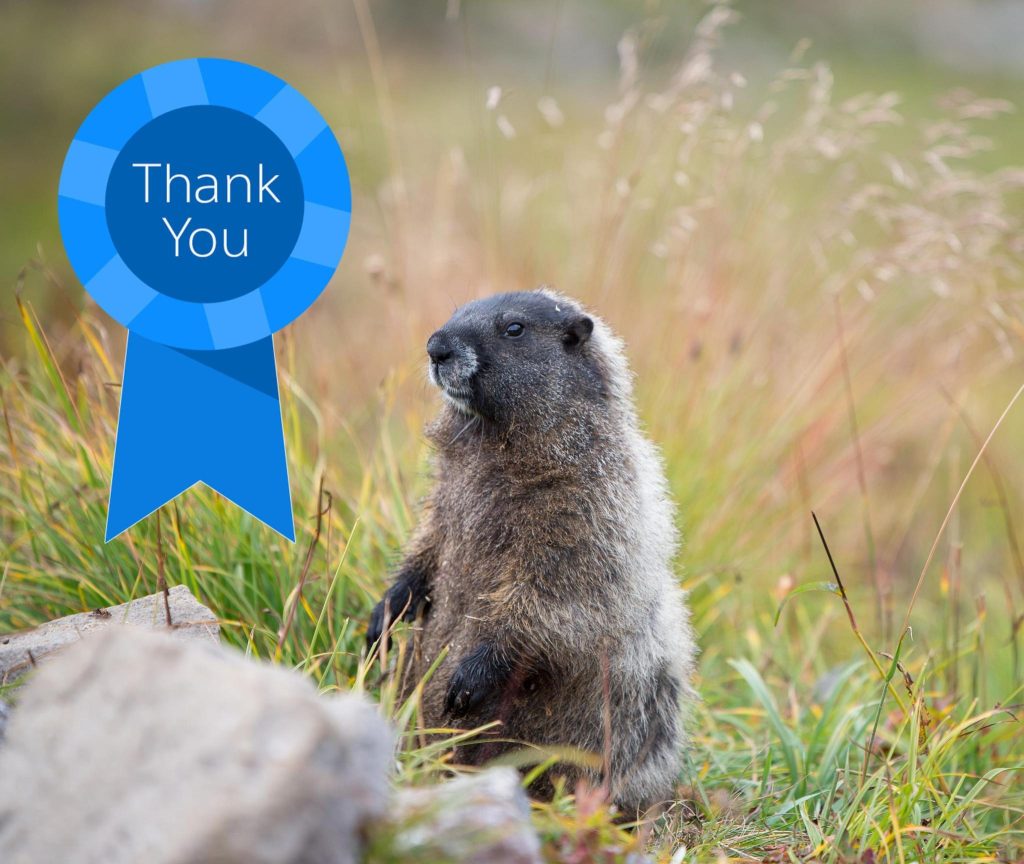
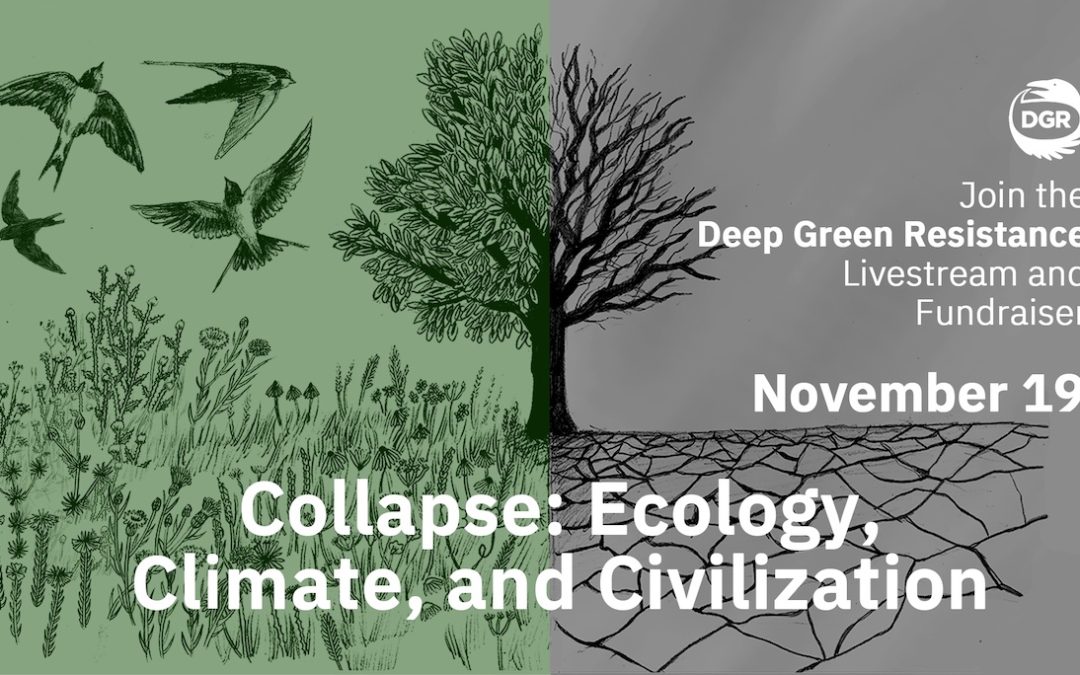
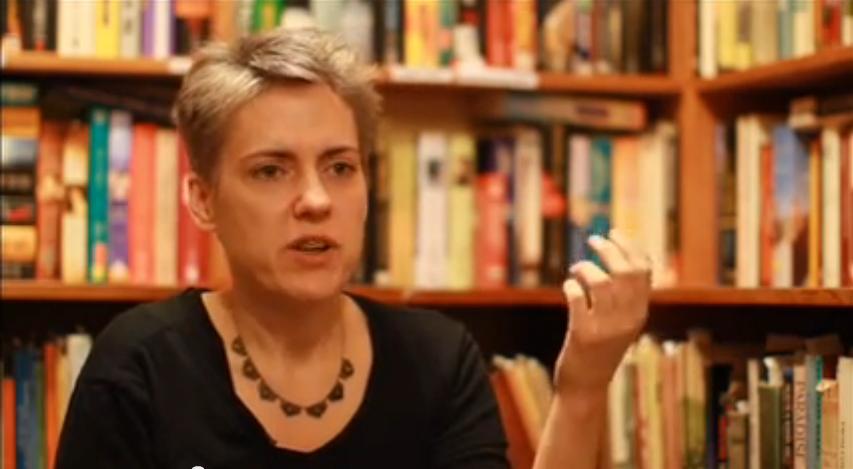
 Saba, also a founding member of Deep Green Resistance, is a longtime radical feminist, environmentalist, and anti-racist organizer. She studies herbal medicine and loves to spend time in the forest with her children.
Saba, also a founding member of Deep Green Resistance, is a longtime radical feminist, environmentalist, and anti-racist organizer. She studies herbal medicine and loves to spend time in the forest with her children.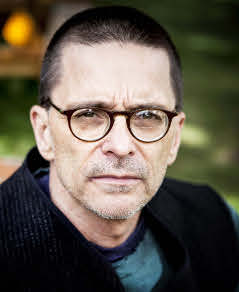
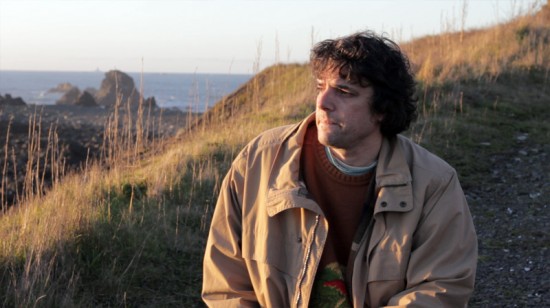
![Collapse: Ecology, Climate and Civilization [Event Announcement]](https://dgrnewsservice.org/wp-content/uploads/sites/18/2022/10/Collapse-banner-image-1080x675.jpg)
